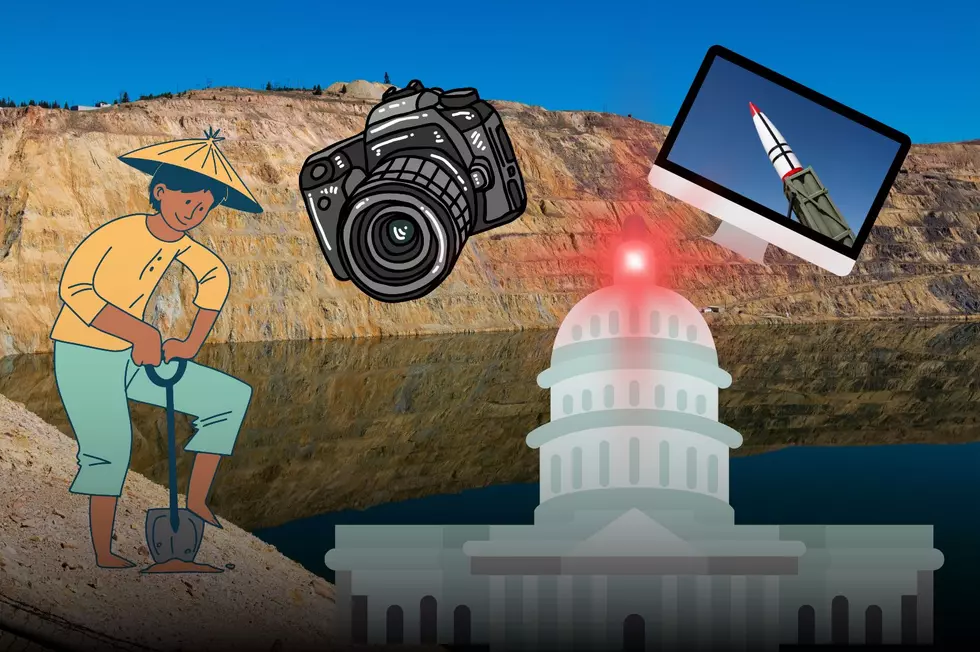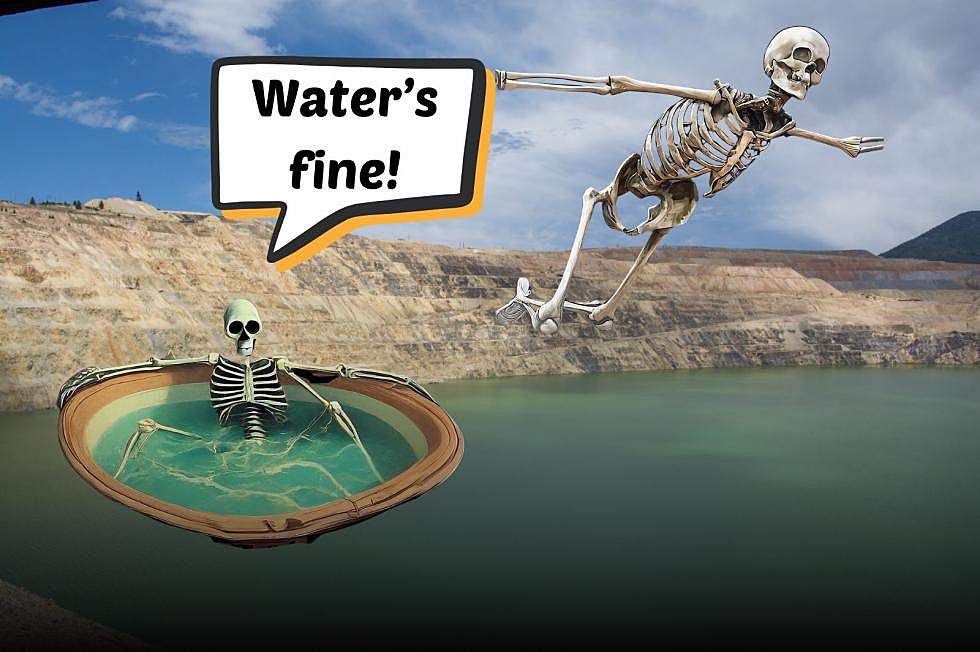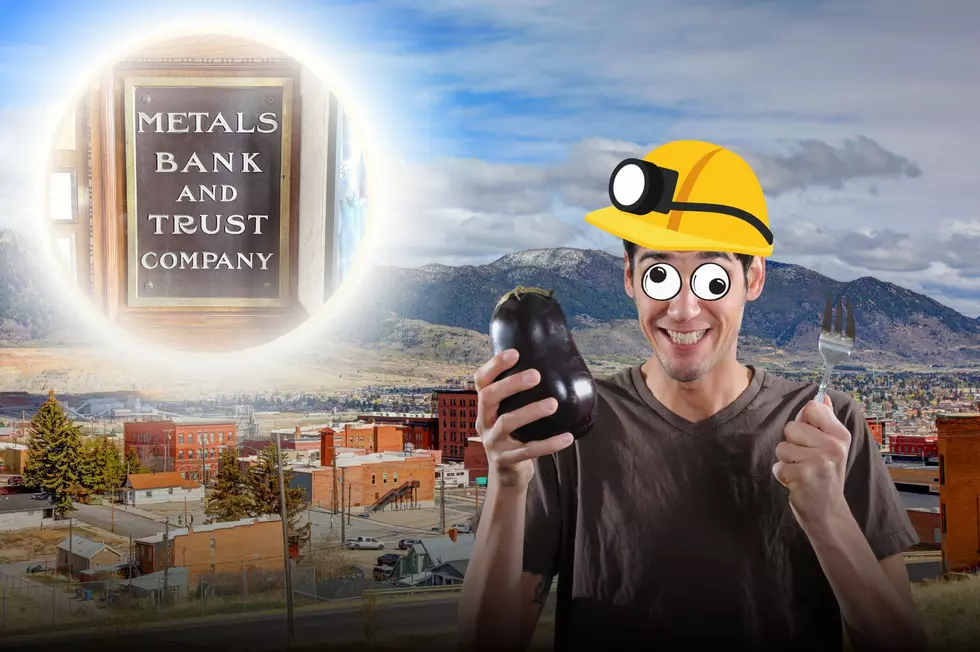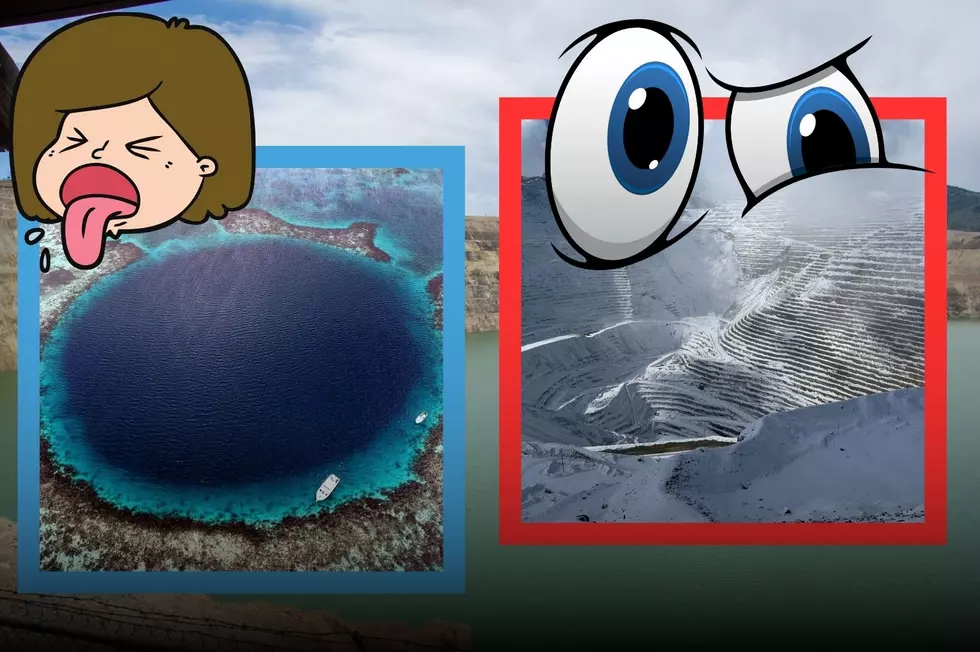
Is Butte’s Berkeley Pit a Treasure Trove? DoD Believes So
BUTTE, MT - The Berkeley Pit is known to many, especially here in Butte, and is gaining more recognition nationwide as the notoriety for the bubbling crater increases. I mean, it's one of the biggest manmade holes in the world and is the birthplace for many mining-related urban legends for us Butte folk. Plus, it's an absolute trip to look at, whether it's your first time seeing it or have the pleasure of laying eyes on it everyday like I do.
I won't be getting in to the history of the Pit today, though I recommend looking into it a tad if you're unfamiliar before reading the rest of this article. But, needless to say, it is a source for a lot of controversy. Within the past few years, that controversy derives from the question of, "What should we do with it?" And it's a valid question. What should Butte and the state of Montana do about the toxic pit, if anything at all?

Well, in this recent story reported by the Montana Standard, the U.S. Department of Defense (DoD) has been interested—and in some cases, provoking organizations such as West Virginia University and the Montana Mining Association—in collecting the Pit's rare resources, which is currently owned by Montana Resources, while the site’s environmental liability is held responsible by Montana Resources and Atlantic Richfield/BP.
This is not a huge surprise, as the DoD has been reportedly been shopping around for bids on a successful extraction project for years. In fact, Butte's very own Montana Tech has submitted a proposal themselves. If the DoD ends up funding one or a few of these projects, the benefits could outweigh the negatives.
Did you know that China has been dominating the field in rare-earth elements? Elements, by the way, that are vital to a massive range of modern technologies the U.S. utilize, such as guided weapons, smartphones, TVs, lasers, and much more. It makes sense why the U.S. Gov. would be interested in harvesting such materials from the site. It could prove to make a difference in the next, unfortunate-but-inevitable war.
The questions that arise: Should it be done? How will it be done? What is the cost—financially and ecologically? Only time will answer these.

In the meantime, check out the original article from our friends at the Montana Standard here. And be sure to let us know your opinion on the whole thing.
Montana's 7 Poorest Cities Ranked
Gallery Credit: Derek Wolf
THE LIST: Where To Find Montana's Best Nachos
Gallery Credit: mwolfe
32 Interesting Photos of Montana's Fantastic Dive Bars
Gallery Credit: mwolfe
More From 92.5 KAAR Country









